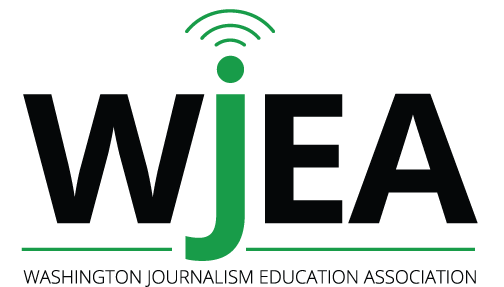Washington State Constitution
Washington State Constitution
ARTICLE I
DECLARATION OF RIGHTS
SECTION 5 FREEDOM OF SPEECH. Every person may freely speak, write and publish on all subjects, being responsible for the abuse of that right.
— | — | —
Washington Administrative Code: Student Rights
Citation: WAC 180-40-215
Summary from the Student Press Law Center Resource Library: In addition to the First Amendment to the U.S. Constitution, states can provide additional free speech protection their own citizens by enacting state laws or regulations. The Washington Administrative Code’s section on Student Rights is such a provision and may provide students attending Washington public high schools with added protection against administrative censorship.
Section 215. Student rights
In addition to other rights established by law, each student served by or in behalf of a common school district shall possess the following substantive rights, and no school district shall limit these rights except for good and sufficient cause:
…
(2) All students possess the constitutional right to freedom of speech and press, the constitutional right to peaceably assemble and to petition the government and its representatives for a redress of grievances, the constitutional right to the free exercise of religion and to have their schools free from sectarian control or influence, subject to reasonable limitations upon the time, place, and manner of exercising such right.
…
The foregoing enumeration of rights shall not be construed to deny or disparage other rights set forth in the constitution and the laws of the state of Washington or the rights retained by the people.
— | — | —
Since 1974, the Student Press Law Center has been the nation’s only legal assistance agency devoted exclusively to educating high school and college journalists about the rights and responsibilities embodied in the First Amendment and supporting the student news media in their struggle to cover important issues free from censorship.
— | — | —
Student Press Law & Ethics
- American Civil Liberties Union: Site of the national organization includes students’ rights section.
- Freedom Forum: Nonpartisan foundation dedicated to free press, free speech, free spirit for all people. Priorities include the Newseum, First Amendment freedoms, newsroom diversity.
- Legal Information Institute First Amendment Page: First Amendment section of the comprehensive, searchable legal resource site.
- National Coalition Against Censorship: Alliance of 50 national non-profit organizations united to defend freedom of thought, inquiry and expression. Works to educate our own members and the public at large about the dangers of censorship and how to oppose them.
- Oyez: The OYEZ Project provides access to more than 2000 hours of Supreme Court audio. All audio in the Court recorded since 1995 is included in the project.
- Reporters Committee for Freedom of the Press: Resource in free speech issues, disseminating information through a quarterly legal review, a bi-weekly newsletter, a 24-hour hotline, and various handbooks on media law issues.
- SPJ-FOIA: Links to information about federal and state Freedom of Information issues; Society of Professional Journalists sponsors site.
- Student Press Law Center: Advocate for student free-press rights; provides information, advice and free legal assistance to students and educators.
- Student Press Review: Site of Columbia Scholastic Press Association; stories and links to student press resources.
- U.S. Copyright Office: Basics of copyright law and answers to common questions.
- www.teachfirstamendment.org: Resources for teaching the first amendment in high school classrooms.
- Committee to protect journalists: Nonprofit group committed to projecting journalists across the globe.
- First Amendement project: A nonprofit advocacy organization dedicated to protecting and promoting freedom of information, expression, and petition. Includes guides to free court access.
- National Freedom of Information Coalition: Offers grants to Freedom of Information coalitions around the country. Links to state access sites.
- Freedom of Information Center at Missouri School of Journalism: News and links for FOI.
- Reporter”s Committee for Freedom of the Press: Free legal access to journalists.
- First Am handbook from the reporter”s committee for Freedom of the Press: http://www.rcfp.org/handbook/index.html
- Open Government Guide: RCFP state-by-state guide to open meetings and open records laws.
- Quick n” Easy Media Law Research (Missouri school of J): http://foi.missouri.edu/legalsites.html
- Media Law Resource Center: Monitors developments and promote First Amendment rights in the libel, privacy and related legal fields.
- Can We Tape? A state-by-state guide from RCFP: http://www.rcfp.org/taping/index.html
- RCFP Access to Places (newsgathering issues): http://www.rcfp.org/places/
- Fairness and Accuracy in Reporting: Scrutinizes media coverage.
- Findlaw.com: Search for Supreme Court cases.
By David L. Hudson Jr., First Amendment Center research attorney
Public school students do not lose their constitutional rights when they walk through the schoolhouse doors. The U.S. Supreme Court has recognized that “students in school as well as out of school are ‘persons’ under our Constitution.” This means that they possess First Amendment rights to express themselves in a variety of ways. They can write articles for the school newspaper, join clubs, distribute literature and petition school officials.” … read more


